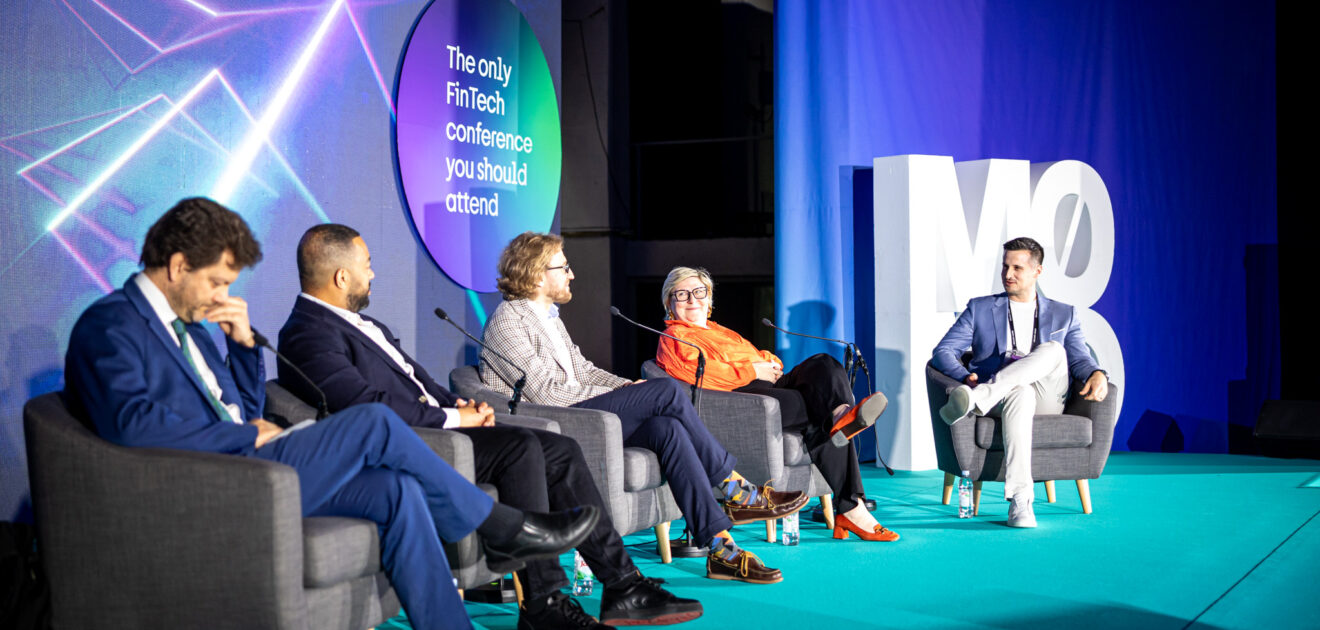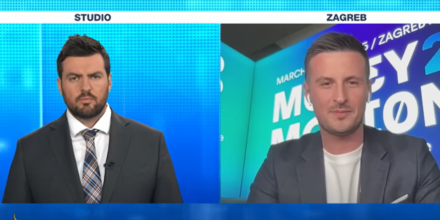“Last year, I thought we had peaked—but this year, we’ve welcomed even more attendees and taken the conference to the next level.”
With those words, Damir Čaušević, CEO of Monri Payments and co-founder of Money Motion, kicked off one of the most anticipated panels of the conference. Featuring some of the most influential voices in fintech and payments, the discussion offered deep insights into the future of cards, the rise of instant payments, embedded finance, and the potential of the digital euro.
The expert panel included:
-
Dwayne Gefferie, Payments Strategist & Director of Gefferie Group
-
Krzysztof Sobala, Senior Principal for SEE, Mastercard Data & Services
-
Silvia Mensdorff-Pouilly, SVP, Head of Business Development Enterprise EMEA at WorldPay & co-founder of EWPN
-
Ignacio Terol, Strategy Manager of the Digital Euro Project at the European Central Bank
-
Moderated by Damir Čaušević, CEO of Monri Payments
Here are the key takeaways from the panel discussion:
Q: Chris, are we going to have cards in the future?
Krzysztof Sobala (Mastercard):
“Cards are no longer our only business—but they are still a strong, secure, and trusted form of payment. They continue to grow across key channels and geographies. While card rails remain vital, most people would be surprised to learn that a significant portion of Mastercard’s transactions in Europe are now account-to-account, powered by instant payments.”
He added, “We’re actively working in 15 of the world’s top 50 economies to provide instant payment infrastructure. But fraud is a major issue—worth $13B annually. If fraud were a country, it would be the third-largest economy in the world. That’s why we’re investing billions into anti-fraud solutions.”
Q: Ignacio, what is the EU Central Bank building?
Ignacio Terol (ECB):
“Why does cash exist? It ensures freedom and sovereignty within the currency area. But demand for cash is declining as people look for more digital ways to pay. When Spain and Germany adopted the euro, cash was accepted everywhere. But in Croatia—our newest eurozone member—that’s no longer the case, especially in e-commerce.”
He shared a striking example:
“During EuroCup 2023 in Germany, payment options were Visa, Mastercard, and Alipay. Imagine the Super Bowl only accepting Alipay—that would cause a stir. That’s why we’re building European infrastructure based on open standards—potentially including NFC or QR—available to all providers.”
Q: Silvia, are we moving beyond cards?
Silvia Mensdorff-Pouilly (WorldPay):
“In many developing nations, instant payments took off due to lack of existing infrastructure. But even in mature markets like the Netherlands, the form factor of cards is evolving. What makes cards powerful is not just the convenience, but the clarity on liability when things go wrong. New payment methods must offer that same level of trust to be adopted by both consumers and merchants.”
Q: Dwayne, are cards dead or just evolving?
Dwayne Gefferie:
“Cards are evolving. The physical card used to be designed for your wallet—but now it lives in your phone. Whether it’s Apple Pay or Google Pay, the card sits in a secure vault. But the future is about embedded payments—biometric passkeys that let you pay across all devices without even thinking about it.”
He added:
“Over 69% of global retail volume—around $29 trillion—is still processed through cards, whether physical or tokenized in wallets.”
Q: Will Big Tech go solo in payments?
Krzysztof Sobala (Mastercard):
“It’s not easy. Payments are highly regulated. While Big Tech has ambition, many have realized it’s best to stick to their core competencies and collaborate. The next frontier is in connected cards—using basket data, banking insights, loyalty ecosystems. Data is becoming the new currency.”
Q: What are retailers asking for?
Dwayne Gefferie:
“Retailers want frictionless experiences. The best ones are using technology to make checkout seamless—from smart baskets to one-click checkouts like Amazon. Tokenization and reusable logins are becoming the norm. The goal is speed, convenience, and ultimately, using data to drive repeat purchases.”
Q: Silvia, what’s WorldPay’s strategy?
Silvia Mensdorff-Pouilly:
“We’re not just processing card payments—we support many alternative methods. Merchants want options. But legacy infrastructure can be a barrier. In some countries, checks are still in use! That’s holding us back from investing in innovation. As I always say—Money makes the world go round, but payments make the money go round.”
Q: What’s next from Mastercard?
Krzysztof Sobala:
“We’re focusing on tokenization and PassKey—safe, seamless experiences for consumers. But also on personalization. How do we use payment data to drive incremental value for merchants and banks? It’s all about consent-based personalization that enhances the customer experience and drives growth.”



